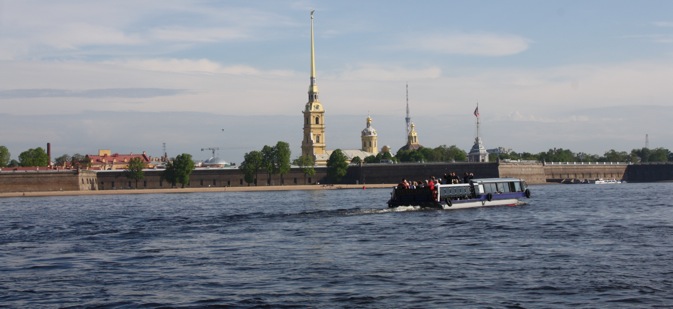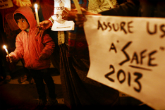Violent crimes and media attention

St Petersburg has been unfairly stimatised as a violent city. Source: Ajay Kamalakaran
It’s always nice to get feedback from readers and I was pleasantly surprised when a doctor from St Petersburg, who was en route to Puttaparthi in southern India, told me how much he enjoyed reading my blogs. The Russian devotee of the Sathya Sai Baba had one complaint: he said I glorified and romanticised the Russian Far East but was critical of his hometown in this article. He argued that the particular article could have been published without a mention of skinheads, especially since attacks were rare and I personally never faced any.
“Why does it warrant a mention,” he asked while emphasising that Russia is a violent society and that anyone could fall victim to a violent crime anywhere in the country, including in what he described as my “Far Eastern paradise!” The gentleman, who is an Indophile and an avid reader of the Russia & India Report, also took issues with articles about students in Russia talking about alleged racism but not based on their own personal experiences. “You create an unnecessary fear by such mentions,” he argued.
This is a common complaint from Russian travellers and diplomats alike. The Indian media is accused of paying too much attention to incidents that are rare and more an exception than the rule. The doctor also insisted that Indians were more prone to fear after reading articles about crime in Russia than Russians when they read about violence in India. “There are cases of Russian women getting raped or even murdered in India, but that doesn’t stop Russian tourists from vacationing in Goa,” he said.
The issue of violence against women in India has been justifiably covered on a large scale by both the Indian and international media. I’d agree that the country wouldn’t change until and unless it was shamed internationally. It would, however, be unfair to assume that every single woman of “European appearance” is in danger of getting violated in India. As this column is being written, there is furore in India over the news that a Swiss tourist was gang-raped in Madhya Pradesh, in the presence of her husband. There are, however, millions of foreign women who visit India each year and leave without any untoward incident.
The doctor from St Petersburg argued that common precautions were needed to be taken by travellers to both Russia and India but he had an issue with his hometown being labelled a racist city. “We have about 5 million residents and the criminals in the lot are a fringe element of society,” he argued. “Just like India having more than a billion people, most of them genuinely good human beings.” The proud St Peterburger insists that the media needs to accept that travellers, businessmen and students are expected to take necessary precautions in strange and new environments. By reminding people that stray incidents have taken place over a long period of time, the media was indeed doing places like India and Russia a great disservice.
One could argue that the doctor’s suggestions are food for thought. Russia and India do have their fair share of problems with violent crime but highlighting them time and again, especially to people who are looking for nothing more than an interesting and exotic holiday may not be the best possible approach. But then again, incidents of Indians getting assaulted in Britain don’t make the queues for a visa to the UK any smaller. Perhaps the greater fear for Indians when it comes to Russia is the possibility of facing some kind of problem and not being able to communicate properly with the locals. This is precisely why Russia is keen on inviting package tourists from India.
There is a great adventurous spirit among young Indians and I would recommend Generation Y to visit Russia independently. Travelling solo is a great way to see the country and make new friends. The communication gap isn’t as daunting as it’s made out to be and yes, basic precautions and common sense are the keys to avoid unpleasant situations in Russia.
Tailpiece: A Venezuelan once told me that he was attacked by racist thugs. Since the only Russian word he knew was ‘privet,’ I asked him how he knew they were racist. He then backtracked and said it was an assumption but he was in a shady neighbourhood, partly drunk at 3 am. He also said that he might have tried to hit on a girl who was smiling at him. So much for racism!
All rights reserved by Rossiyskaya Gazeta.
Subscribe
to our newsletter!
Get the week's best stories straight to your inbox
